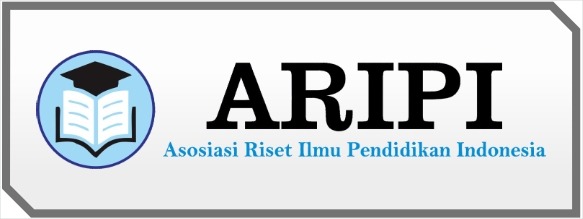Demonstration Methods to Improve Students' Learning Outcomes in Class 2 Pancasila Symbol Materials at SD N Utan Kayu Selatan 01 2022/2023
DOI:
https://doi.org/10.61194/education.v1i1.32Keywords:
Demonstration Method, Civics, Learning OutcomesAbstract
There are many ways to improve learning outcomes, where one of the methods used is the demonstration method, if most of the teaching material is only delivered in verbal language so that it is sometimes difficult for students to understand, then with the demonstration method the explanation becomes easier for students to understand. The method used is qualitative with a class action model. The aim of the study was to determine the effect of the demonstration method on the learning outcomes of Civics class 2 students at SDN Utan Kayu Selatan 01 Jakarta for the 2022/2023 academic year. This research is a two-round action research with each cycle consisting of four stages, namely planning, action and observation, reflection, and review. The subjects of this study were grade 2 students at SD N Utan Kayu Selatan 01 Jakarta for the 2022/2023 academic year whose student learning outcomes increased from Cycle I to Cycle II. Cycle I (51%) and Cycle II (89%). This study found that the demonstration method had a good effect on student learning outcomes at SD N Utan Kayu Selatan 01 East Jakarta and this learning method could be used as an alternative to civics learning.
References
Alhawsawi, S., & Jawhar, S. S. (2023). Education, employment, and empowerment among Saudi women. Gender and Education, 35(4), 401–419. https://doi.org/10.1080/09540253.2023.2189917
Aningsih, A. (2018). Kemampuan Berpikir Tingkat Tinggi pada Pendidikan Agama Islam Siswa Kelas X SMK Muhammadiyah 1 Purwokerto Ditinjau dari Prestasi Belajar. Skripsi Fakultas Agama Islam Universitas Muhamadiyah Purwokerto.
Barlian, I. (2013). Begitu Pentingkah Strategi Belajar Mengajar Bagi Guru? Jurnal Forum Sosial, VI(01).
Budiyanto, M. (2016). Sintaks 45. Malang: Universitas Muhammadiyah Malang Pres.
Cha, S.-H. (2016). Decentralization in educational governance and its challenges in Korea: Focused on policy conflicts between central and local government in education. Asia Pacific Education Review, 17(3), 479–487. https://doi.org/10.1007/s12564-016-9448-3
Chen, W.-H., & Ho, T.-H. (2020). The application of yantian cultural resources in design education-taking the yantian community in tainan as an example. Sustainability (Switzerland), 12(7). https://doi.org/10.3390/su12072660
Crivits, M., de Krom, M. P. M. M., Block, T., & Dessein, J. (2018). Using policy discourses to open up the conceptual space of farm education: inspiration from a Belgian farm education network. Environmental Education Research, 24(9), 1320–1339. https://doi.org/10.1080/13504622.2017.1301384
Eddles-Hirsch, K. (2015). Phenomenology and Educational Research. International Journal of Advanced Research, 3(ue 8).
Fletcher, T., & Hordvik, M. M. (2023). Emotions and pedagogical change in physical education teacher education: a collaborative self-study. Sport, Education and Society, 28(4), 381–394. https://doi.org/10.1080/13573322.2022.2035345
Gitman, L., & J. (2015). Principles of Managerial Finance. United States of America: Pearson Education. Cashmere. Rajawali Press.
Granić, A. (2022). Educational Technology Adoption: A systematic review. Education and Information Technologies, 27(7), 9725–9744. https://doi.org/10.1007/s10639-022-10951-7
Guinée, N. (2014). Empowering women through education: Experiences from Dalit women in Nepal. International Journal of Educational Development, 39, 183–190. https://doi.org/10.1016/j.ijedudev.2014.07.007
Hakizimfura, E., Randall, D., & Zia, B. (2020). Decentralized delivery of financial education: Experimental evidence from Rwanda. Journal of Development Economics, 144. https://doi.org/10.1016/j.jdeveco.2020.102439
Hastangka, H., Armawi, A., & Kaelan, K. (2019). Dampak sosialisasi empat pilar MPR RI terhadap Pendidikan Pancasila di perguruan tinggi. Jurnal Civics: Media Kajian Kewarganegaraan, 16(2). https://doi.org/10.21831/jc.v16i2.21908
Isa, I. M. M., Bunyamin, M. A. H., & Phang, F. A. (2022). Bridging Culture and Science Education: Implications for Research and Practice. International Journal of Learning, Teaching and Educational Research, 21(10), 362–380. https://doi.org/10.26803/ijlter.21.10.20
Kubisch, S., Parth, S., Deisenrieder, V., Oberauer, K., Stötter, J., & Keller, L. (2021). From transdisciplinary research to transdisciplinary education-the role of schools in contributing to community well-being and sustainable development. Sustainability (Switzerland), 13(1), 1–13. https://doi.org/10.3390/su13010306
Kusnadi, E., Martini, E., & Nugraha, G. N. (2017). Konstruk pembelajaran pendidikan kewarganegaraan berbasis masalah untuk meningkatkan kemampuan berfikir kritis peserta didik. Jurnal Pendidikan Kewarganegaraan, 2(2).
Laging, M., & Heidenreich, T. (2019). Towards a Conceptual Framework of Service User Involvement in Social Work Education: Empowerment and Educational Perspectives. Journal of Social Work Education, 55(1), 11–22. https://doi.org/10.1080/10437797.2018.1498417
Nawaz, T. (2022). What’s in an education? Implications of CEO education for financial inclusion. International Journal of Finance and Economics, 27(3), 3741–3753. https://doi.org/10.1002/ijfe.2348
Nur, S., & Sudarsono, S. (2019). Implementasi Pendidikan Demokrasi Dalam Pembelajaran IPS Study Kasus Sma Negeri 6 Takalar. Equilibrium: Jurnal Pendidikan, 6(2). https://doi.org/10.26618/equilibrium.v6i2.2585
Opuni-Frimpong, N. Y., Essel, H. B., Opuni-Frimpong, E., & Obeng, E. A. (2022). Sustainable Development Goal for Education: Teachers’ Perspectives on Climate Change Education in Senior High Schools (SHS). Sustainability (Switzerland), 14(13). https://doi.org/10.3390/su14138086
Ramayulis. (2012). Metodologi Pendidikan Agama Islam. Kalam Mulia, 44(1).
Saputra, E. (2021). Kontribusi Tokoh Punakawan pada Pagelaran Wayang Kulit terhadap Pendidikan Islam kepada Masyarakat. SAP (Susunan Artikel Pendidikan), 6(2). https://doi.org/10.30998/sap.v6i2.9958
Saqr, M., Poquet, O., & Lopez-Pernas, S. (2022). Networks in Education: A Travelogue Through Five Decades. IEEE Access, 10, 32361–32380. https://doi.org/10.1109/ACCESS.2022.3159674
Schiepe-Tiska, A., Heinle, A., Dümig, P., Reinhold, F., & Reiss, K. (2021). Achieving Multidimensional Educational Goals Through Standard-Oriented Teaching. An Application to STEM Education. Frontiers in Education, 6. https://doi.org/10.3389/feduc.2021.592165
Servant-Miklos, V. (2022). Environmental education and socio-ecological resilience in the COVID-19 pandemic: lessons from educational action research. Environmental Education Research, 28(1), 18–39. https://doi.org/10.1080/13504622.2021.2022101
Shojaei, M. S., Tavakoly Sany, S. B., Ghavami, V., & Tehrani, H. (2022). An educational intervention based on family-centered empowerment model to modify high-risk behaviors of brucellosis via mother education. Scientific Reports, 12(1). https://doi.org/10.1038/s41598-022-23385-5
Sumanto & Seken, I. M. (2012). Modul Pengembangan Materi Umum: Media Pembelajaran SD. Malang:Kementrian Pendidikan danKebudayaan . Modul Pengembangan Materi Umum:
Swift-Morgan, J. (2014). Confronting the informal in good governance: The case of decentralised education-system reform in Guinea. Development Policy Review, 32(4), 399–425. https://doi.org/10.1111/dpr.12061
Zorić, V. (2015). Educational policy in socialist Montenegro. Sodobna Pedagogika/Journal of Contemporary Educational Studies, 66(2), 96–113. https://www.scopus.com/inward/record.uri?eid=2-s2.0-84962222138&partnerID=40&md5=8b465a1de4b5f0209241d4904ceb7bab






